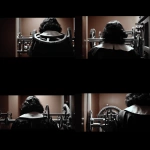Explore the Best AI Image Gallery

Crafting the Future: AI-Generated Media and the Ethical Crossroads of Creativity
The realm of creativity is undergoing a profound transformation, fueled by the emergence of artificial intelligence (AI) and its ability to generate media content. From realistic images and captivating videos to compelling music and imaginative text, AI-powered tools are blurring the lines between human and machine creation. This seismic shift presents both exciting opportunities and complex ethical challenges that demand careful consideration.
The Creative Potential of AI-Generated Media
AI-generated media has the potential to revolutionize various aspects of the creative industry:
- Democratizing Creativity: AI tools can empower individuals with limited technical skills to create professional-quality content, opening up new avenues for self-expression and artistic exploration.
- Accelerated Production: AI algorithms can automate repetitive tasks, significantly reducing the time and resources required for content creation, allowing artists and designers to focus on higher-level creative endeavors.
- Novel Artistic Expression: AI can generate entirely new forms of art and media, pushing the boundaries of imagination and exploring uncharted territories in creative expression.
Ethical Considerations: Navigating the Uncharted Territory
While the potential benefits are undeniable, the rise of AI-generated media also raises a number of ethical concerns:
- Copyright and Ownership: The question of who owns the copyright to AI-generated content is complex and still being debated. Determining authorship and intellectual property rights in a world where machines can create is a crucial challenge.
- Bias and Representation: AI algorithms are trained on vast datasets, which can contain inherent biases that reflect societal stereotypes and prejudices. This raises concerns about the potential for AI-generated media to perpetuate harmful representations and discrimination.
- Authenticity and Transparency: Consumers have a right to know when they are interacting with AI-generated content. Lack of transparency can erode trust and create confusion about the origins and authenticity of media.
- Job Displacement: The automation potential of AI raises concerns about job displacement in creative industries. It is essential to consider the impact on human workers and develop strategies for reskilling and adaptation.
Shaping the Future: Responsible Development and Regulation
As AI-generated media continues to evolve, it is crucial to establish ethical guidelines and regulatory frameworks that promote responsible development and use. Key considerations include:
- Promoting Diversity and Inclusion in AI Training Data: Efforts should be made to ensure that AI algorithms are trained on diverse and representative datasets to mitigate bias and promote fairness.
- Developing Ethical Guidelines for AI Content Creation: Clear guidelines are needed to address issues such as copyright, authorship, transparency, and the potential for misuse of AI-generated media.
- Encouraging Collaboration Between Stakeholders: Fostering dialogue and collaboration among artists, technologists, policymakers, and the public is essential to navigate the ethical complexities of AI-generated media.
The intersection of AI and creativity presents both extraordinary opportunities and significant challenges. By embracing a responsible and ethical approach, we can harness the transformative power of AI to enhance human creativity, foster innovation, and shape a future where technology empowers artistic expression and cultural enrichment.
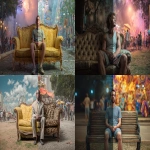
](https://images.ai-img.art/thumbnails/150/8fd5788e152269ccc7eeb4a5287499cc5f55ca46d75afc237030f50a1b60c6ca.webp)


](https://images.ai-img.art/thumbnails/150/786d3898a4574da9c53e922bd2a30035084a90a9a6f5cc6bee514d0150ba3403.webp)
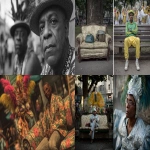



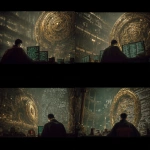

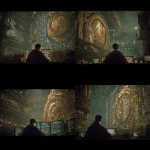

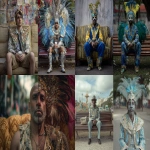







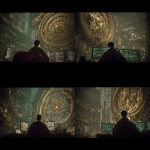
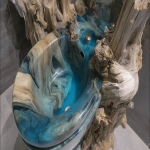

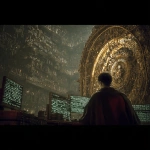







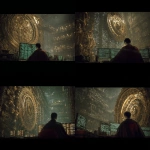


](https://images.ai-img.art/thumbnails/150/69daab74527edc292198788487e2d0d5f1bb1aba897d85b79ff4015ea305631d.webp)
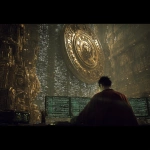
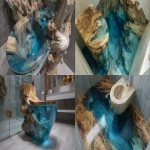

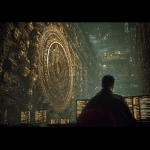
](https://images.ai-img.art/thumbnails/150/0d2c5ff24ca9024b95b5f0d1d0e673146e5dd5f31c7b3a7092322afe4a3c46eb.webp)






](https://images.ai-img.art/thumbnails/150/24ccaad8968bce75611aa4ff739695d61b7d06bd128d44cfbb3a6c46be30ed33.webp)
](https://images.ai-img.art/thumbnails/150/7889b264cc5c27f6b7a00af1767a689c9df2b49d36667764d8322ae0c0fed64a.webp)
